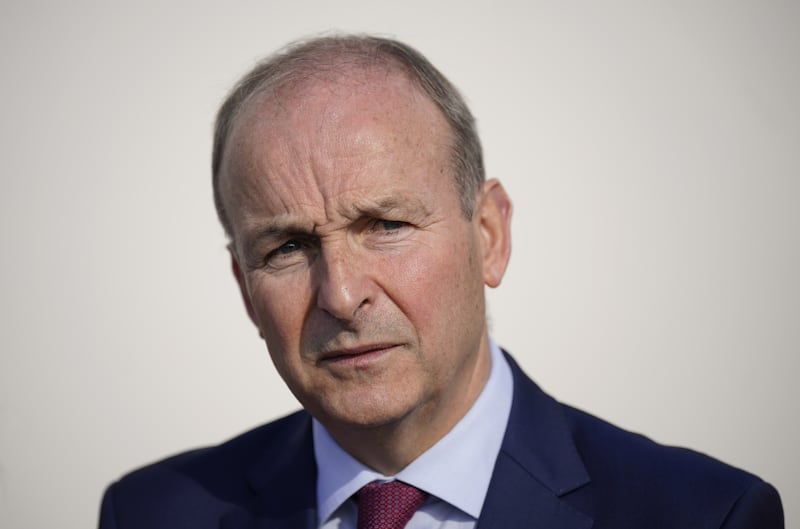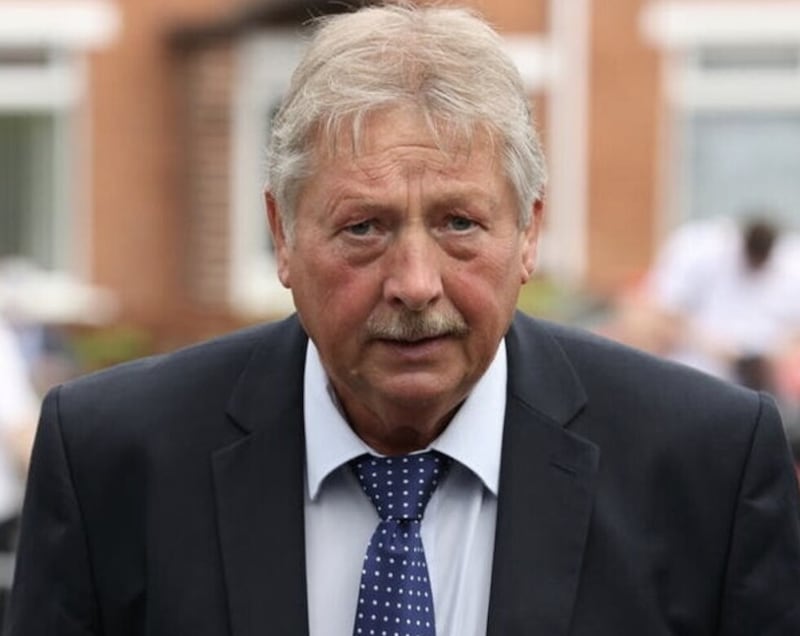Sir Jeffrey Donaldson has reaffirmed his belief that the deal agreed with the British government effectively removes the Irish Sea border.
The DUP leader said the command paper published on Wednesday outlining fresh measures designed to ease trade barriers between Britain and the north confirmed that routine checks under what was previously the green lane will be halted.
The British government’s ‘Safeguarding the Union’ document includes a pledge to removed checks on goods destined solely for Northern Ireland under a new ‘UK internal market system’.
The changes, which come as the DUP prepares to end its two-year boycott of power-sharing, are understood to have the consent of the European Union.
Downing Street has said the deal contains “significant” changes to the Windsor Framework’s operation but does not alter its “fundamentals”.
The paper includes a series of measures aimed at ensuring the “smooth flow of goods” within the UK internal market, alongside commitments on Northern Ireland’s constitutional status.
The associated legislation is expected to be fast-tracked through Westminster on Thursday, enabling the restoration of the Stormont institutions at the weekend.
British Prime Minister Rishi Sunak said this week’s breakthrough gave the north the prospect of a “brighter future”.
“After two years without an executive, there is now a prospect of powersharing back up and running, strengthening our Union, giving people the local, accountable government that they need, and offering a brighter future for Northern Ireland,” he told the House of Commons.
Sir Jeffrey, who has engaged in a series of media interviews in which he has sought to defend the deal, hailed the removal of checks as a key concession.
“There should not be a border within the UK internal market – these proposals remove that border,” he said.
Tánaiste Micheál Martin said he didn’t “anticipate any difficulties” from the EU in relation to the deal.

“I think the EU Commission will look at this, I think that’s the whole purpose of the joint committee and, indeed, the various mechanisms that are in the Windsor Framework is to go through issues as they arise, but I do not anticipate any particular difficulties in respect of the EU side,” he said during a visit to Belfast.
Secretary of State Chris Heaton-Harris said the deal was the “right one for Northern Ireland and for the union”.
He referenced last week’s impassioned speech from Sir Jeffrey, noting “many of us in this chamber last week could not fail to have been struck by his unshakeable advocacy on behalf of the unionist cause”.
But the House of Commons also heard criticism of the deal from DUP hardliner Sammy Wilson.
While avoiding direct criticism of his party leader, the East Antrim MP attacked the British government.

“When the Northern Ireland assembly sits, ministers and assembly members will be expected by law to adhere to and implement laws which are made in Brussels, which they had no say over and no ability to amend, and no ability to stop,” he said.
“This is a result of this spineless, weak-kneed, Brexit-betraying government, refusing to take on the EU and its interference in Northern Ireland.”
TUV leader Jim Allister said the union was “still ruptured” and that only difference from the Windsor Framework was that “the DUP is stepping up as protocol implementers”.
He said it required “semantic contortions” to contend that the north was not in the EU’s single market.
“There is no point in HM government boasting that parliament is sovereign when it refuses to take back the sovereignty over NI surrendered to the EU,” he said.
SDLP leader Colum Eastwood said the expected restoration of the institutions represented a “new start for everyone across the north”.
He aid he had urged the British government to begin discussions with the executive parties, the incoming new opposition and the Irish government about reform of te Stormont structures.
“No one party should be allowed to shatter that potential and leave our society adrift again,” he said.


